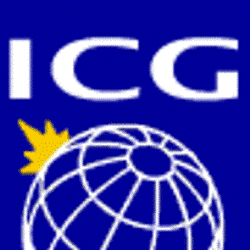Bosnia´s Incomplete Transition: Between Dayton and Europe, the latest report from the International Crisis Group argues that a quick closure of the Office of the High Representative (OHR) would put at risk the country´s relative stability and the progress achieved so far.
“Tensions are high, and national leaders are challenging the Dayton settlement more openly than ever before”, warns Marko Prelec, Crisis Group´s Senior Analyst in Sarajevo. “The end of Bosnia´s time as an international protectorate will be most welcome and should come soon, but now is the wrong time to rush the transition”.
The Peace Implementation Council (PIC), the international body that oversees Dayton, will discuss closing the OHR on 26-27 March. Because several specific conditions it set in 2008 for ending the protectorate have not been met, the PIC should appoint a strong, new High Representative and affirm that the OHR will remain in place until all conditions are satisfied.
Compromising now would send the wrong signal to Bosnian leaders and damage the ability of the European Union (EU) to carry out the additional responsibilities it will need to take on when the protectorate does end.
But the OHR is no longer the motor driving Bosnia forward. Its role is now limited to protecting Dayton and unblocking the often-paralysed central government. Bosnia´s leaders, accustomed to being protected against the worst effects of their irresponsibility, must finally begin to make the hard choices needed to achieve European integration, and the EU should step up its presence in Bosnia without delay.
Once the OHR closes, hopefully by the end of 2009, a strong EU mission will be needed both to protect Bosnia´s stability and to encourage its membership candidacy. With its still deep split between three constituent peoples – Bosniak, Croat and Serb – and fresh memories of war, Bosnia is not like other candidate countries, and EU policy that has worked elsewhere must be reinforced.
The EU should resolve to act as guarantors of Dayton against unilateral challenge and begin now to focus on the specific powers its Special Representative (EUSR) requires, as well as increase financial support.
“Many Bosnians doubt the EU wants them to join or can persuade local politicians to reform”, says Sabine Freizer, Crisis Group´s Europe Program Director. “If the EU is to bring stability to the Western Balkans, its member states need first to agree that Bosnia still matters for European security, then fundamentally strengthen their political, legal and financial tools for dealing with a still fragile country”.





